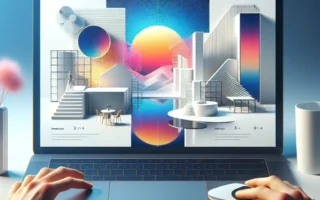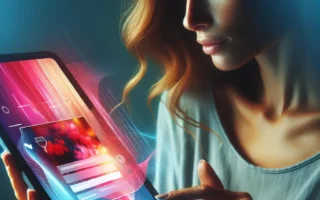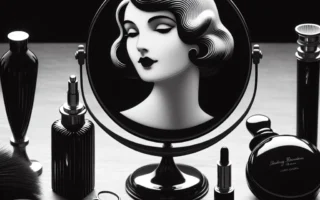Ancient Origins of Makeup: A History of Cosmetics
When we delve into the ancient origins of makeup, we are met with a rich history of cosmetics that dates back centuries. From the use of natural pigments and dyes by the ancient Egyptians to the lead-based formulas of the Roman Empire, makeup has always held a significant place in human culture.
One of the most fascinating aspects of makeup history is the use of contouring products, which have been employed for enhancing facial features for centuries. Ancient civilizations used various techniques to contour and sculpt the face, often utilizing natural ingredients like clay, plant-based dyes, and minerals to create the desired effects. The art of contouring has evolved over time, leading to the development of modern contouring products that are widely available in the beauty market today.
If you’re interested in exploring the modern evolution of contouring products, you can find a variety of options contouring products. These products represent the culmination of centuries of cosmetic innovation, offering a range of tools and formulas to achieve the perfect contoured look.
Ancient Origins of Makeup: A History of Cosmetics
Makeup cosmetics have a rich and ancient history that dates back to the early civilizations. The origins of makeup can be traced back to ancient Egypt, where both men and women used cosmetics for various reasons. The use of kohl to line the eyes and red ochre to color the lips and cheeks were common practices in ancient Egypt, showcasing the early artistry and beauty rituals that laid the foundation for modern makeup.
Ancient Greece and Rome also played a significant role in the evolution of cosmetics, with both societies using makeup to enhance their natural beauty. Women in ancient Greece used white lead and chalk to lighten their complexion, while the Romans used a wide range of cosmetics including powders, rouge, and even eyebrow darkeners.
Furthermore, the use of makeup extended to ancient civilizations in Asia, such as China and Japan. Traditional Chinese makeup often featured vibrant colors and intricate designs, while geisha in Japan used a distinctive white face powder and red lipstick.
These ancient origins of makeup laid the groundwork for the development of cosmetics throughout history, shaping the way makeup is perceived and utilized in the present day. Understanding the historical significance of cosmetics offers valuable insights into the cultural and societal influences that have shaped the beauty industry over the centuries.
The Rise of Modern Makeup: From Victorian Era to Present Day
Makeup cosmetics have come a long way since their humble beginnings, undergoing a remarkable evolution that reflects the shifts in societal norms, technological advancements, and artistic expressions. The rise of modern makeup can be traced back to the Victorian era, a period characterized by strict social conventions and a conservative approach to beauty. During this time, makeup was primarily used by stage performers and considered inappropriate for respectable women.
However, the late 19th century saw a gradual shift in attitudes towards cosmetics, with the emergence of beauty ideals that emphasized a more natural and youthful look. This led to the popularization of subtle beauty enhancements such as rosy cheeks, lightly tinted lips, and delicate eye accents. The introduction of commercially available cosmetic products, including face powders, lip tints, and rouges, marked a significant turning point in the history of makeup, laying the foundation for the modern beauty industry.
Fast forward to the present day, and makeup has become a ubiquitous form of self-expression, empowerment, and creativity. With the proliferation of social media and beauty influencers, the contemporary makeup landscape is characterized by diversity, inclusivity, and innovation. Consumers now have access to an extensive range of products that cater to various skin tones, textures, and preferences, reflecting a more inclusive definition of beauty.
Looking towards the future, the evolution of makeup cosmetics is set to be shaped by cutting-edge technologies, sustainability initiatives, and changing consumer behaviors. As the beauty industry continues to embrace digitalization and personalized experiences, we can expect a convergence of skincare benefits with makeup formulations, as well as a heightened focus on eco-friendly packaging and ingredients.
In conclusion, the evolution of makeup cosmetics from the Victorian era to the present day encapsulates a compelling narrative of transformation, empowerment, and cultural influences. As we navigate the ever-changing dynamics of beauty trends, it’s clear that makeup will continue to evolve, reflecting the evolving attitudes and aspirations of society.
Future Trends in Cosmetics: Innovation and Sustainability
As we look towards the future of makeup cosmetics, it is evident that innovation and sustainability will play a crucial role in shaping the industry. Consumers are increasingly seeking products that not only enhance their appearance but also align with their values of environmental consciousness and ethical sourcing. With this in mind, the future of cosmetics will undoubtedly be characterized by a shift towards sustainable and eco-friendly formulations and packaging.
One of the key trends that we can expect to see in the future is the widespread adoption of biodegradable and compostable packaging for makeup products. Brands are already exploring innovative materials such as bamboo, sugarcane-based plastics, and reusable containers to minimize their environmental impact. Additionally, the development of refillable and customizable packaging solutions will enable consumers to minimize waste while enjoying the versatility of personalized cosmetics.
Furthermore, the future of makeup cosmetics will witness a surge in the use of natural and organic ingredients, as consumers increasingly prioritize clean beauty formulations. This will drive the development of advanced extraction and processing techniques to harness the full potential of botanicals, minerals, and other natural resources while ensuring sustainable sourcing practices.
Technology will also continue to shape the future of cosmetics, with the rise of personalized beauty experiences through artificial intelligence and augmented reality. Customized makeup solutions tailored to individual preferences and skin types will become more accessible, offering consumers a seamless and personalized shopping experience.
In conclusion, the future of makeup cosmetics is poised for a transformative shift towards innovation and sustainability. By embracing eco-friendly packaging, clean formulations, and personalized experiences, the industry is set to meet the evolving demands of conscious consumers while minimizing its environmental footprint.
Beauty Beyond Appearance: The Psychological Impact of Makeup
Makeup cosmetics have evolved significantly over time, transforming from ancient pigments and substances to modern, innovative products. However, the impact of makeup goes beyond mere appearance. The psychological impact of makeup is an intriguing aspect that has garnered increasing attention in recent years. Research has shown that wearing makeup can enhance self-esteem and confidence. The act of applying makeup can serve as a form of self-expression, allowing individuals to convey their creativity and personality. Moreover, the ritual of applying makeup has been linked to a sense of empowerment and control over one’s appearance.
Furthermore, makeup has the potential to affect social perceptions and interactions. Studies have suggested that wearing makeup can influence how others perceive and respond to an individual. Whether it’s in a professional setting or social environment, the use of makeup can subtly shape others’ impressions and judgments. Additionally, the act of receiving compliments or positive feedback about one’s makeup can contribute to a boost in mood and overall well-being.
Looking ahead, the future of makeup appears to be intertwined with technology, sustainability, and inclusivity. Advancements in augmented reality and artificial intelligence are poised to revolutionize the way individuals experiment with makeup virtually. Moreover, there is a growing emphasis on sustainable and eco-friendly practices within the cosmetics industry, reflecting a shift towards greater environmental consciousness. The movement towards inclusivity has also gained momentum, with the expansion of shade ranges and the celebration of diverse beauty standards.
In conclusion, makeup cosmetics have transcended their role as mere enhancers of physical appearance. The psychological impact of makeup encompasses aspects of self-confidence, self-expression, and social dynamics. As the beauty industry continues to evolve, it is essential to recognize the multifaceted influence that makeup holds in our lives.



